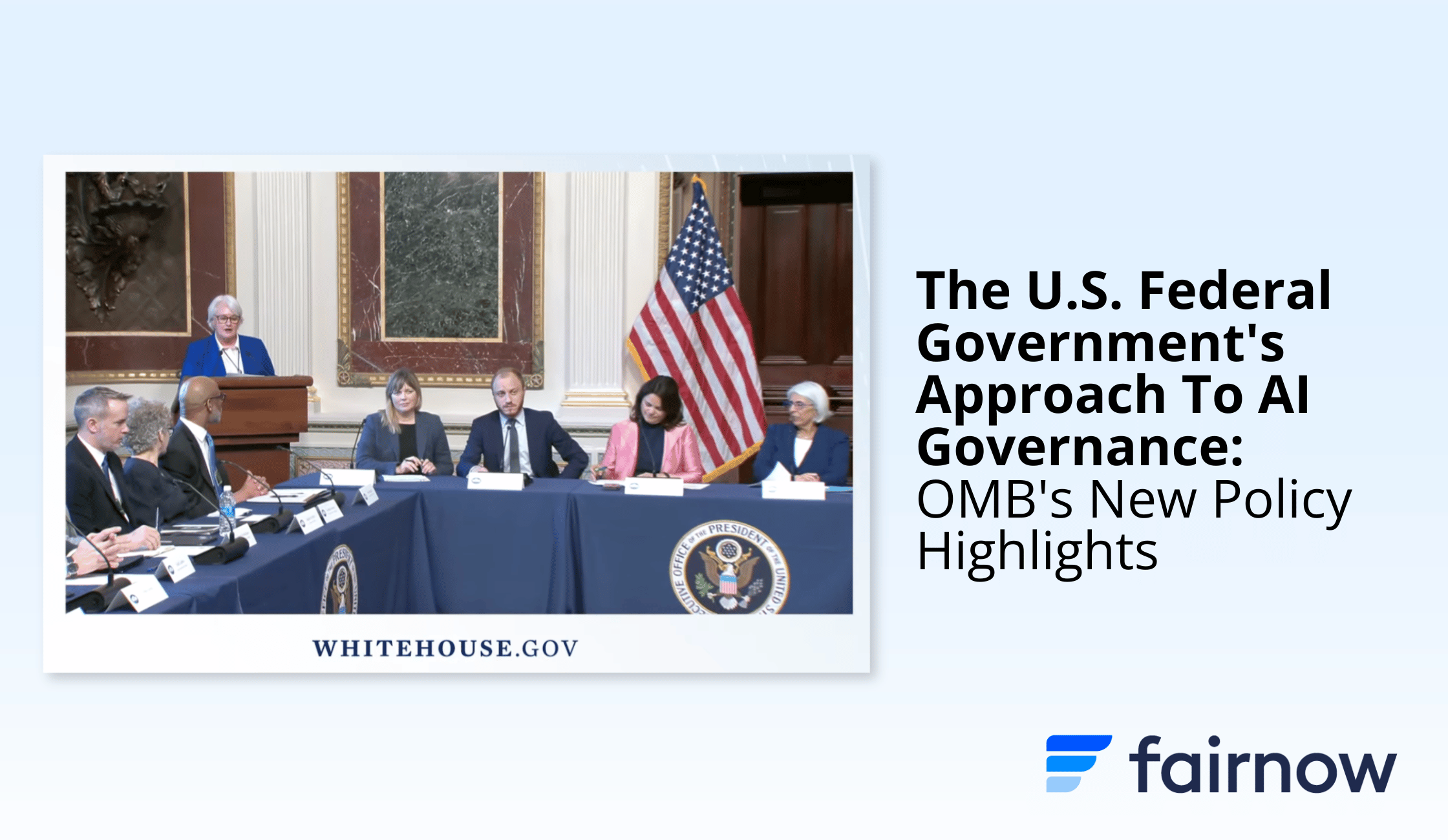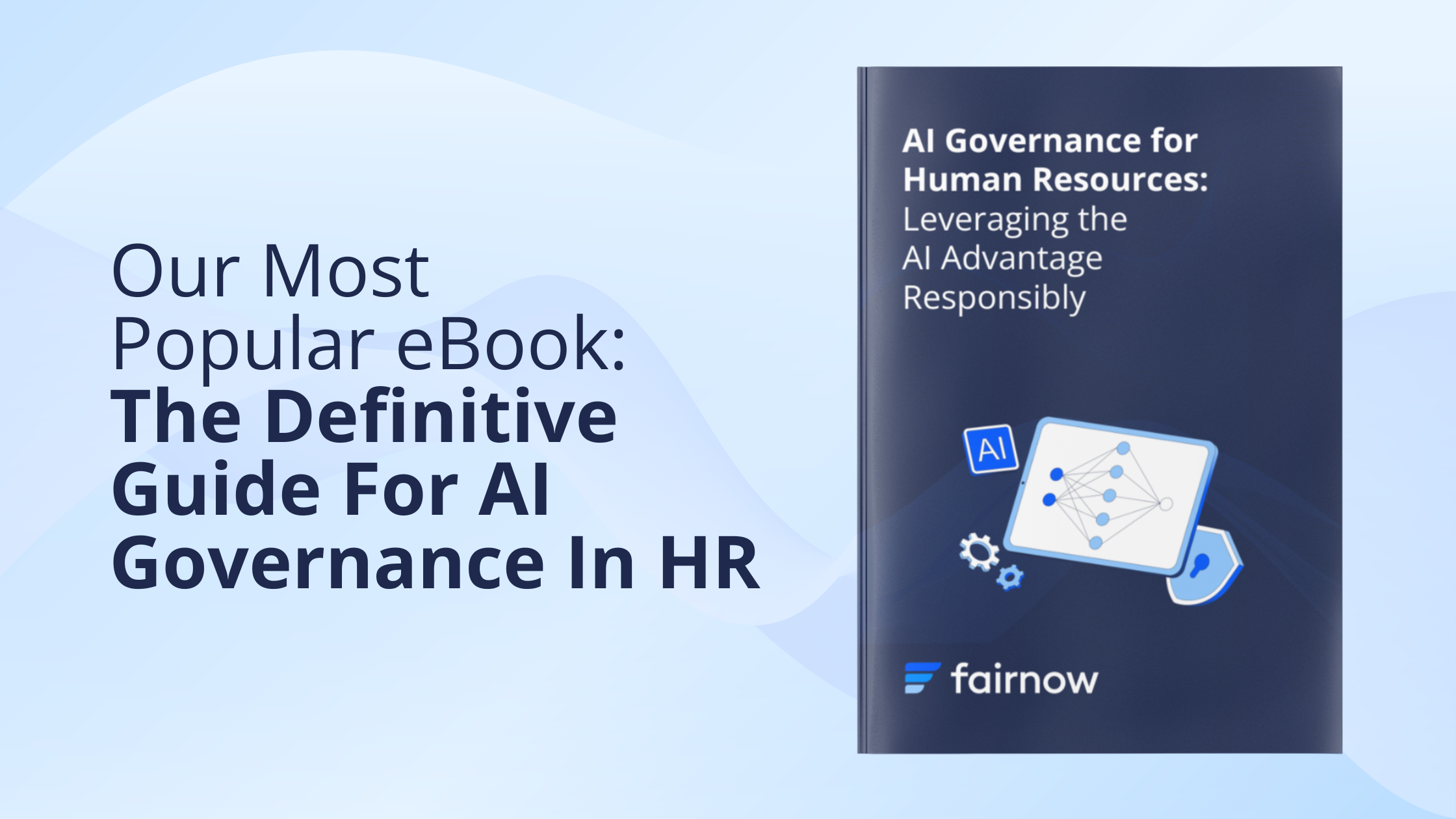The Biden-Harris Administration has unveiled a pioneering policy for the federal use of artificial intelligence (AI), aiming to balance innovation with risk management and ethical considerations.
Key Insights From The OMB Policy to Advance Governance, Innovation, and Risk Management in Federal Agencies’ Use of Artificial Intelligence
- By December 1, 2024, federal agencies must implement safeguards to protect Americans’ rights and safety when using AI, addressing risks of algorithmic discrimination and ensuring transparency.
- The policy looks to add accountability and responsibility to government agencies by appointing Chief Artificial Intelligence Officers (CAIO) roles. (Within 60 days of the issuance of this memorandum, the head of each agency must designate a CAIO.) Additionally, the policy emphasizes growing the AI workforce, with a commitment to hiring 100 AI professionals by Summer 2024 and expanding AI training programs.
- The policy highlights many AI governance best practices, including model inventorying, model card/validation controls and documentation, independent testing and evaluation, and continuous monitoring.
- Agencies are required to improve transparency about AI use, including releasing annual AI use case inventories and engaging in public reporting.
- The policy also adds specifics around Generative AI (GenAI) procurement. Although high-level, it calls for adequate testing, safeguards, and evaluation.
- The advancement of responsible AI innovation is encouraged, with an emphasis on removing barriers to its use and promoting federal leadership in ethical AI practices.
Today marks a significant milestone in the governance and innovation of artificial intelligence within the U.S. federal government. Following President Biden’s Executive Order, Vice President Kamala Harris announced a comprehensive policy developed by the Office of Management and Budget (OMB).
This policy mandates federal agencies to implement robust safeguards by December 1, 2024, ensuring AI does not compromise American rights or safety. Key safeguards include risk assessment, transparency, and the mitigation of algorithmic bias, particularly in critical areas like healthcare, transportation, and public safety.
This directive also underscores the necessity of a skilled AI workforce. The policy aims to increase accountability and responsibility in government agencies through the creation of Chief Artificial Intelligence Officers (CAIO) positions. (Each agency head is required to appoint a CAIO within 60 days following the release of this memo.) The Administration also pledges to hire 100 AI specialists by Summer 2024, enhancing the government’s capability to manage AI risks and foster innovation.
The policy encourages transparency in AI usage, requiring agencies to publish detailed annual inventories of AI applications and engage in public reporting to bolster accountability. The policy also outlines several best practices for AI governance, such as cataloging models, implementing model card/validation controls along with documentation, conducting independent testing and evaluation, and ongoing monitoring. Finally, the policy provides details regarding the procurement of Generative AI (GenAI). While it remains broad in scope, it mandates thorough testing, the establishment of safeguards, and comprehensive evaluation.
Advancing responsible AI innovation is a central theme. The policy advises federal entities on responsibly embracing AI, including generative AI technologies, to improve government services and address societal challenges like climate change and public health. By setting these standards, the Administration seeks not only to ensure AI’s safe federal application but also to inspire global standards for AI governance and innovation, reinforcing America’s position as a leader in ethical AI development.
The Biden-Harris Administration’s new AI policy represents a critical step forward in the responsible management and deployment of artificial intelligence across federal agencies. By instituting stringent safeguards, promoting transparency, and committing to workforce development, the U.S. government is poised to lead by example in the ethical use of AI, safeguarding citizens’ rights and setting a global standard for AI governance.
Keep Learning




